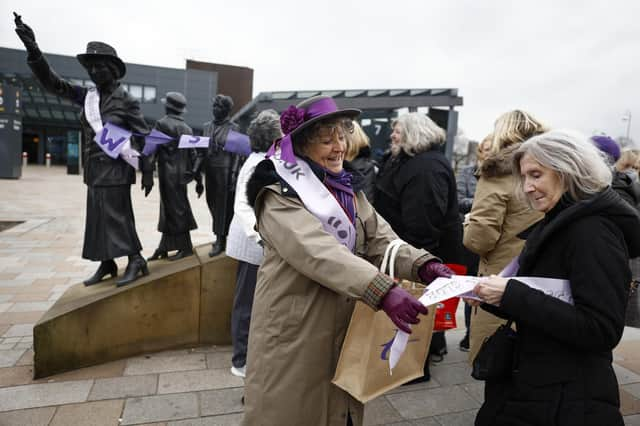Waspi women who lost out over change to state pension age offered little hope by Tories or Labour – Christine Jardine


It was the first issue to be raised with me at a constituency surgery immediately after I was elected seven years ago. So it is staggering to consider that it was only a few days ago that the Parliamentary and Health Service Ombudsman finally published their findings into how the Department for Work and Pensions communicated changes to women’s state pension age.
Many of us expected that report’s recommendations to be the end of it. That finally the millions of women who have been affected by this, have been living with the consequences and dealing with the repercussions for far too long, would have closure. My own party has long been committed to the implementation of the report’s recommendations.
Advertisement
Hide AdAdvertisement
Hide AdAnd, cynically perhaps, I thought that a government, facing a potential general election defeat, might seize the opportunity to right a widely perceived injustice. Or that an opposition looking to present themselves as offering a brighter way ahead might snap up the chance to offer unconditional support for the ombudsman’s recommendations. It seems not.
Slow progress
Instead, what we have is another round of arguing. This time not about who was to blame but about who was actually affected. Was it really that bad and how is the country going to afford the recommended pay-outs of between £1,000 and £2,950 to those involved? In the report, the ombudsman seemed to have anticipated much of this by recommending that parliament should intervene rather than wait for the DWP to rectify the problem.
And, in that, the ombudsman has surely shown up the government by making it clear they are aware how long it has taken to reach these conclusions and make progress towards getting those affected any meaningful compensation. Perhaps that view was underlined by the minister’s recent comments, prior to publication of the report, in which he expressed sympathy for those in difficult circumstances, but pronounced the welfare state to be sufficient in providing support.
In the immediate aftermath of that publication, there seemed little enthusiasm from either Labour leader Keir Starmer or Home Secretary James Cleverly in interviews to commit to the recommendations. This week we expect a statement from the government but then what?
Basic human decency
Sadly, there is little optimism for anything other than the inaction that we have come to expect, not just in this issue but in the protracted inquiries and delayed settlements over the infected blood scandal, Hillsborough and so many others. Many of the women too seem unsurprised, if disappointed, at the lack of an immediate definitive outcome. As do those who have campaigned tirelessly for justice for them.
Perhaps we should remember that theirs is a generation which did not enjoy the same protections and equality in their workplace that we do now. That, ultimately, this is about respect. Or the lack thereof. That it is about the treatment of citizens by their government. And basic human decency.
I hope that when the Department for Work and Pensions and Downing Street consider the report, they realise the value of those they seek to represent. And what they have been denied. Then perhaps that statement this week might be a pleasant surprise.
Christine Jardine is the Scottish Liberal Democrat MP for Edinburgh West
Comments
Want to join the conversation? Please or to comment on this article.